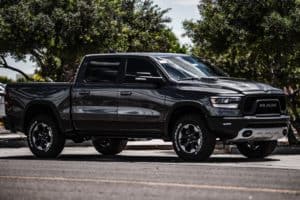Autonomous Trucks May Affect Drivers Everywhere in the Future
With the recent news of federal hours of service changes, another topic that is being met with mixed reactions is the growth of autonomous truck testing. In December 2019, a self-driving truck made a cross-country journey from California to Pennsylvania to transport butter. Residents in surrounding states are wondering when they can expect to see autonomous trucks in their states and what the impact of this emerging trend will have on roadway safety and trucking law. Our New Jersey truck accident lawyers have been watching this topic with interest.
Where Are Autonomous Trucks Being Tested?
For now, New Jersey residents can breathe a sigh of relief. There are currently no major autonomous truck testing programs in the state. To be able to test self-driving vehicles or trucks, a sponsor company needs to obtain special permission from a state government. Some of the biggest current truck testing programs are in Texas, Arizona and California.
In Texas, Kodiak Robotics is testing self-driving trucks for commercial delivery purposes. The testing route is limited to a stretch along I-45 between two of the major cities that are almost 250 miles apart. In the next few years, the company hopes to expand its testing to other cities. Although it wants to eventually expand to other states, its current legal limitations keep it within state lines.
California was one of the first states to approve multiple testing licenses for autonomous passenger vehicle companies. It also approved several companies that plan to test large trucks on delivery routes. Several years ago, the state approved Plus.ai, which was the company that made the cross-country delivery to Pennsylvania recently. The executives of Plus.ai were especially pleased that the 2,800-mile trek only took three days to complete.
Arizona is another state that was a pioneer in approving autonomous testing licenses for passenger cars. It has also approved multiple companies to test autonomous trucks. TuSimple and Waymo are among the notable companies that are testing trucks in the state now. TuSimple is collaborating with UPS, and the companies hope to see the technology make profound changes in the future of delivery trucks. The goal of UPS is to reduce the cost of using tractor-trailers for shipping by up to 30 percent.
What You Need to Know About Autonomous Trucks

When people hear about driverless or self-driving vehicles, those terms make it easy to imagine that the vehicles are completely empty. In the case of autonomous trucks, they are not currently operating on busy roads without drivers. Although some are designed to have that ability, they still require safety engineers or safety drivers to occupy the cabin. If there are any emergencies, the safety workers are trained to handle them.
With autonomous trucks and cars, there are different levels of autonomy. For example, some are simply designed to assist drivers. They have autonomous features that make driving easier without removing the need for a person to perform some or most of the driving tasks. Fully autonomous vehicles are designed to operate without the need for anyone to occupy the vehicle. Although it will be several years before semis with full loads can travel along busy roads without drivers, that is the goal of many autonomous truck design companies. The emergence of many of these new companies stemmed from the issue of the trucking industry’s driver shortage and other difficulties. With the need for delivery services expected to grow even more in the future, these companies saw an opportunity to solve problems.
New Jersey Truck Accident Lawyers Have Safety Concerns With Autonomous Trucks
You may have noticed that most of the states where autonomous trucks are being tested have overall milder climates than New Jersey. One of the reasons for this is to optimize safety. Autonomous vehicles generally still do not operate well in inclement weather. Since the designers of these technologies are still developing them, they must choose locations that are ideal. Milder climates reduce some potential complications for the many sensors that autonomous vehicles use. Since the sensors detect cars in other lanes, oncoming traffic and vehicles ahead, it is critical for them to function correctly. Testing them in a milder climate is safer until researchers have more time to improve them and test their limitations more extensively in extreme temperatures and conditions.
After news of a driverless car hitting and killing a person in Arizona, the autonomous driving technology industry came under more scrutiny. The incident was especially worrisome to people all over the country because a safety driver was present in the car. The car was designed to operate completely alone, and the safety driver was reported to be distracted at the time of the incident. This leaves people wondering if driverless semis should ever be on the roads. Before any company in any state can gain permission to test a car or truck without a driver, it must complete many hours or miles of test drives.
One of the biggest autonomous truck safety concerns is that there is currently no legislation in place that gives victims of potential crashes with autonomous trucks any solid recourse to sue. Under current liability laws, someone who is injured by a regular truck in a crash may sue the driver, the company that employed the driver or the company that hired the contracted driver. With Tesla, Otto and other companies pushing closer to the possibility of commercializing driverless trucks, there is an urgent need for potential victims to be able to sue if there are any accidents. Roadway safety organizations and advocacy groups are working to push legislative changes with language that is specific to driverless semis. However, there is also the issue of whether the liable party should be the maker of the technology or the company that is using it. Many logistics companies are working with autonomous technology developers to create truck fleets for them in the future, which makes this an important issue for lawmakers to consider.
New Jersey Truck Accident Lawyers Preparing for Autonomous Trucks in New Jersey
Some good news for drivers in New Jersey is that the Assembly approved a bill to create the New Jersey Advanced Vehicle Task Force in 2019. With a task force that is comprised of key individuals, including leading vehicle and driving safety organizations, residents have a group of advocates that will work hard to promote legislation that ensures stricter safety measures. With the complex roads, construction and heavy volume of traffic in the state, the safety advocates knew that this step was needed. The task force will ensure that lax laws are not passed and that autonomous vehicles can only operate if they have been extensively tested. Since autonomous trucks operate with the help of sensors, the theory is that they should be safer when the cars around them drive safely and responsibly. While it may be years before driverless trucks are on the roads of New Jersey, a good preparatory strategy for now is to practice safe and responsible driving around semis.
If you were injured in a truck accident in New Jersey, you may qualify for compensation for your injuries. Please call us for a free consultation. You can reach us at (732) 247-3600. If you prefer to speak with one of our New Jersey truck accident lawyers in person, you can visit us at 111 Livingston Avenue in New Brunswick or at 21 North Bridge Street in Somerville.


